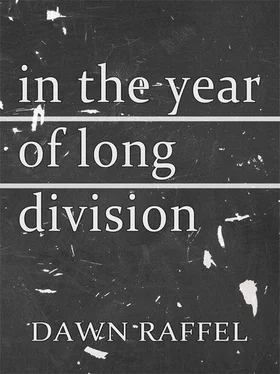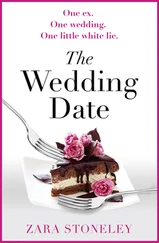A bird in the bush is a saying of the man’s.
“Please,” the daughter of the pastime says. She is in from the kitchen with a flash of flashy leaves in a pot. She says, “The coleus is fragile, molting. Mom,” she says.
“There is nothing for dinner,” the woman says. “The skin of a potato, soup to peas, there is nothing I would care to cook in this house anymore,” the woman says. “And do you know why?” the woman says. “Guess.”
“Greens don’t molt,” the man says. “Hair.”
“Bristles,” the woman says. “You — you have dirt beneath your fingernails,” the woman tells the daughter. “Everything is nibbled or wilted, spoiled.”
“Something cold. A carrot,” the man says. “Mushrooms. How about a salad?”
“Scales?” the woman’s daughter says.
“Yes,” the woman says. “There’s a buzz. You would have to be deaf.”
“What else?” the daughter says. “What molts?”
“Fur,” the man says.
“Horns,” the woman says.
Don’t toot your horn is a saying, too, but the walls in this house cannot talk, of course.
The daughter has ears in her head. She says, “A feather?”
“What kind?” the man says.
“Down,” the woman says. “Because it breathes.”
DISTURBANCES IN THE NIGHT
IT began with a sneeze. Whose? His? Hers? Theirs? The room in which the babies slept was lit, but only lowly, from a socket. There were cockleshells and ruffles. Nothing telling. Soft. The dog was snoring audibly. Linoleum was curling in the kitchen. Was there something coolly humming? Something dripped. Blew. Yes?
Ah, house!
God’s blessings were cribbed, exchanged.
A light was switched.
Then came sounds of running water, paws, a thump.
“Is that you?”
“Who else?”
There were flounces, edges, cues a spouse discerns.
Which?
“Sssshhh,” said she, wife.
He coughed.
Trees, iced, clinked the bubbled glass. Wind whined. A cup was filled.
Over. Again.
Repeat. Repeat. Repeat.
Splash. Lo!
Now let there be towels. Let there be cloths for ablution, for sopping the excess — his, hers — piled and plush, initialed. Done. Money newly minted. Done. A flourishing of service at a snap — the bridal gravy boat, the creamer at your elbow; let us spare no expense on flowing lace. Oh, let fluted crystal ring! Done. Done. Whites talced, a hem, something swishy and medicinal.
“Cold,” said she of hers, “so,” and sipped.
“Too,” said he, and he, house’s mister, gargled, spat.
Did something rattle in a chest?
Hope lodged.
A dental utterance was deemed stuck.
“Do? Till?”
“Till?”
When?
And did said chest presume to be whose?
This is too much to ask.
He — cleared — dispensed, unplugged, harrumphed.
“Please,” said she, parental. There were wee little ears and after all, the time: dead of night, said she; the early morning, he — both at once, for once.
Next, taps, scuffs.
She, waxing prudent, noted chill to factor in, responsibilities, credentials.
He was fully vested. Why? Oh, his aching brain! There were theories and offspring, vectors to vex, the vowled bundles versus bills, said he, diapers, drool, the urgent issues of the day to be examined and discussed.
A nose was nosing rudely.
There were standards, contexts, the slow, wound roads to parenthetical concerns. (Whose? Yours?) And let us have ellipses…. There was mercury to shake down and tongue. Ah…ah.
“Depress.”
Teeth.
A haunch.
A touch.
“Feel this forehead”—he.
“Patience”—she.
“Don’t scratch”—addressed to whose best friend? A thrushy coating on the mouth’s sore roof, remaindered phrases, a slight taste of sand (a foretaste, too, of something to infinitively swallow, slather).
He: Is this normal?
She (wife-ish, squinting): Blankety blank point blank. This suspicion carried over under quilts; hasty paddings, back, forth, a ruffle fluffed, a suckled toast — gesundheit! — the pillows cased and found to be infected.
Heads. Tails.
Unrest, unrest, unrest.
The seconds seemed to toss, the walls to flex.
Something skittered: in the attic, said she; in the crawl space, he, to be exact, or quite likely in the plumbing or circuits, or something in ferment, or the dog, dreaming doggedly, fervently, in slavish devotion to who knew what?
Cries. A howl. A wail.
The sound of keening.
Oh, could there be no containing this house?
GOD spare us this house!
AND let us leave a mark above the door to save our place.
LET us wander on the slow roads away. Let us travel brittle fields. Let us harvest the fallow, huddle, tarry, suck our blackened roots. Let us forage in the orchards, tap the family trees. Let us milk our bright machines and find them gleaming, spent. Let us shiver in the forest. Let us march across the creeks, groaning with the effort, the rigid beds of oceans, cracking polar caps.
For this chill becomes climactic, systemic.
Logic snaps. Projection renders only goosey flesh, extrapolation the same, the same.
Steps lock.
Glass breaks.
The gelid borders shut.
An ill-considered touch can cost a finger, a tongue; a bit of metal, a life.
It is too cold for charms.
A child has died wanting in, knocking wood….
“LET’S look,” said she.
“Let’s sleep,” said he.
“You look,” said she.
“Why me?” said he.
“In the morning; it is nothing, the dog,” said he.
“The babies?”—she.
“What babies?”—he.
“Stop whining”—he.
“Is that you?”—she.
“IS that you?”…
THE dog has left a stain.
A drainpipe is dripping.
Must we help ourselves? Listen, the babies will not be of service. Let us assume: The babies must still be the babies, or else other babies — hungry, wet, diseased.
The pillows must be plumped. The furnace must be stoked. The mister and the missus must not have gotten better. Let us think of them as worse. Why not? It is a matter of time, in any event. Will they claim not to know us? Do you blame them? Think. They are wheezing in bed. They are chattering, doubting. No? Yes. They will never agree.
We have nowhere to sit.
Something has contracted in the throat.
The sheets must be warm. The lips must be split. The knees must be broken.
They will not reveal their names.
Who will see us? Know us? Who will sniff us out? We are not accounted for.
The first blood is ours.
WE are here on the peninsula, where pie is made from scratch and the goats are getting fatter on a nearby roof. It is an upwind roof. This is industry, my father says. Company, my sister says. This is not the dells. All the supper clubs are shut or tight. The falls are somewhere else we have not been. Overhead is where it’s lusher, fresh — green above this hard-luck thumb. But the goats, my sister says, look overwarm. The water is our neighbor, and what washes up is sorry or worse.
There is the smell of the quick.
My mother is cooking in the kitchen again, and I do not know what. Something is chopping. Something is chirping. Something is black in a tree, and blue. A piano must be playing at a distance, someone four and twenty singing, someone whistling for dinner, someone cutting a rug, someone sweeping, and rinsing every dish in the sink. The kettle is on. The timer is off. Efficiency, my mother says, is why she keeps the pans, the pots, the spatulas and spoons, the metal platter for the fish, the cream clotting in the bottle, the needlepoint sampler, tongs, tins, mitts, and all the spices of our life on a hook.
Читать дальше












